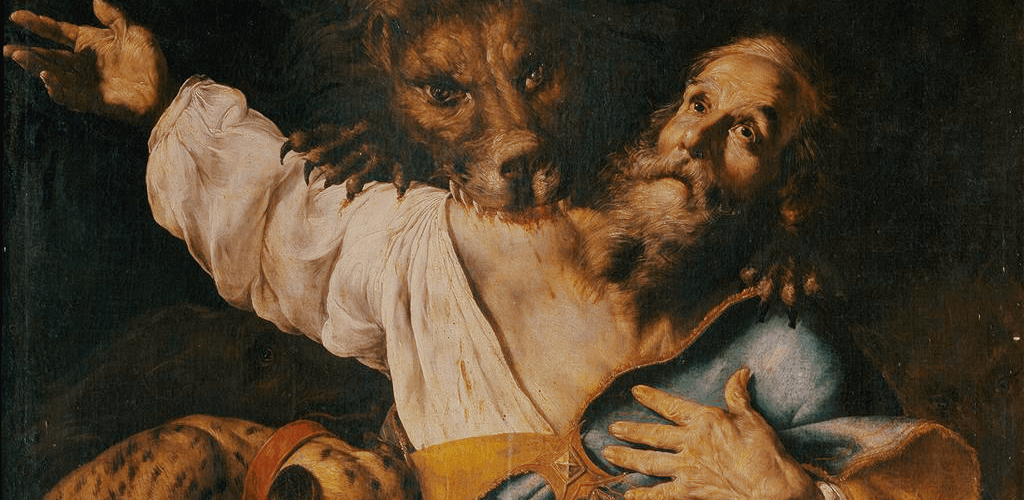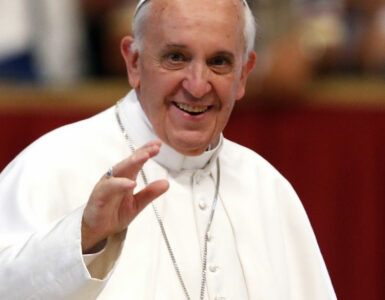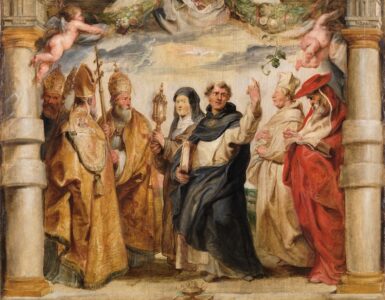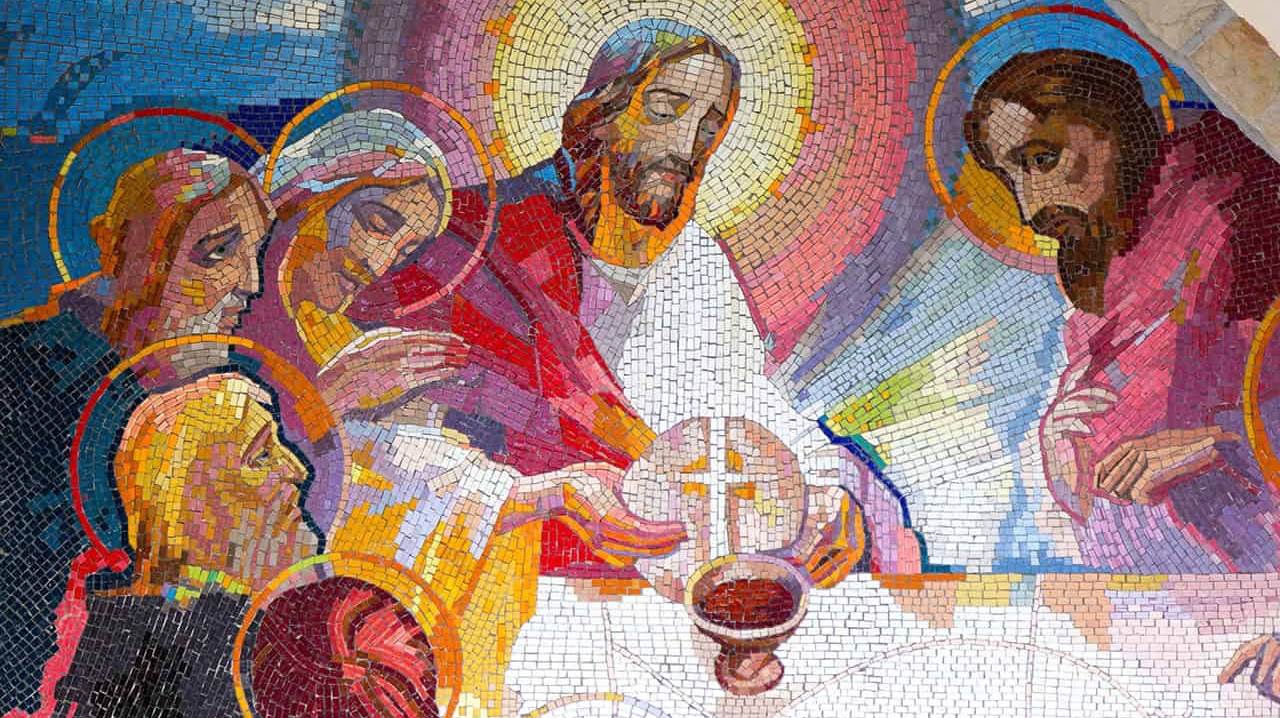On Sunday, May 18th, while working at Sir Anthony Mamo Oncology Centre, I had the grace of following the Mass as well as the homily for the beginning of the pontificate of Pope Leo XIV. A strong theme which emerged from his very dense and profound homily was surely unity and communion in the Church. As I pondered on this theme, I could see how patristic was this claim made by Pope Leo XIV on the Church.
In fact, going back to the patristic data I could come across a lot of passages which openly speak of unity in the Church. The international visible unity of the Church has undoubtedly been the preoccupation of the anonymous author of the Letter to Diognetus. The author provides us the body-soul image to explain his concept of Church unity. In fact, the author writes: To sum up all in one word—what the soul is in the body, that are Christians in the world. The soul is dispersed through all the members of the body, and Christians are scattered through all the cities of the world. The soul dwells in the body, yet is not of the body; and Christians dwell in the world, yet are not of the world. The invisible soul is guarded by the visible body, and Christians are known indeed to be in the world, but their godliness remains invisible.
With Tertullian (c. 155 – c. 220), we appreciate the unity in the Church which goes back to the times of Jesus himself where he sent the apostles to share the Gospel message in every place under the sun. Hence, by instituting churches they claim their apostolic inheritance who form part of that one primitive Church which Christ wanted. All of these churches which form the one Church of Christ are marked by their peaceful communion, and title of brotherhood, and bond of hospitality which point to the one holy, catholic and apostolic Church of Christ. Thus, in his Prescription Against the Herectics, XX, 4, this early Christian apologist writes:
Immediately, therefore, so did the apostles, whom this designation indicates as “the sent.” Having, on the authority of a prophecy, which occurs in a psalm of David, chosen Matthias by lot as the twelfth, into the place of Judas, they obtained the promised power of the Holy Ghost for the gift of miracles and of utterance; and after first bearing witness to the faith in Jesus Christ throughout Judea, and rounding churches (there), they next went forth into the world and preached the same doctrine of the same faith to the nations. They then in like manner rounded churches in every city, from which all the other churches, one after another, derived the tradition of the faith, and the seeds of doctrine, and are every day deriving them, that they may become churches. Indeed, it is on this account only that they will be able to deem themselves apostolic, as being the offspring of apostolic churches. Every sort of thing must necessarily revert to its original for its classification. Therefore the churches, although they are so many and so great, comprise but the one primitive Church, (rounded) by the apostles, from which they all (spring). In this way all are primitive, and all are apostolic, whilst they are all proved to be one, in (unbroken) unity, by their peaceful communion, and title of brotherhood, and bond of hospitality,—privileges which no other rule directs than the one tradition of the selfsame mystery.
On his part, Pope St Clement of Rome (who died around the year 100) and is widely considered to be the first of the Apostolic Fathers of the Church, says that the Church knows its origins from the preaching of Jesus Christ. Christ was sent by God and the apostles were sent by Christ. These orderly appointments already portray a Church that is structured in unity. In his Letter to the Corinthians 42, 1, St Clement affirms:
The apostles have preached the Gospel to us from the Lord Jesus Christ; Jesus Christ [has done so from God. Christ therefore was sent forth by God, and the apostles by Christ. Both these appointments, then, were made in an orderly way, according to the will of God. Having therefore received their orders, and being fully assured by the resurrection of our Lord Jesus Christ, and established in the word of God, with full assurance of the Holy Ghost, they went forth proclaiming that the kingdom of God was at hand. And thus preaching through countries and cities, they appointed the first-fruits [of their labors], having first proved them by the Spirit, to be bishops and deacons of those who should afterwards believe. Nor was this any new thing, since indeed many ages before it was written concerning bishops and deacons. For thus saith the Scripture a certain place, “I will appoint their bishops in righteousness, and their deacons in faith.”
St Ignatius of Antioch (who died circa 108/140), an early Christian writer as well as Patriarch of Antioch, envisages Church’s unity in the one faith, and one [kind of] preaching, and one Eucharist. In his Letter to the Philadelphians 4,1, Ignatius stresses these points when he said: Wherefore I write boldly to your love, which is worthy of God, and exhort you to have but one faith, and one [kind of] preaching, and one Eucharist. For there is one flesh of the Lord Jesus Christ; and His blood which was shed for us is one; one loaf also is broken to all [the communicants], and one cup is distributed among them all: there is but one altar for the whole Church, and one bishop, with the presbytery and deacons, my fellow-servants. Since, also, there is but one unbegotten Being, God, even the Father; and one only-begotten Son, God, the Word and man; and one Comforter, the Spirit of truth; and also one preaching, and one faith, and one baptism; and one Church which the holy apostles established from one end of the earth to the other by the blood of Christ, and by their own sweat and toil; it behooves you also, therefore, as “a peculiar people, and a holy nation,” to perform all things with harmony in Christ.
Regarding St Cyprian of Carthage (210 to 14 September 258) the apostolic succession of the Bishops of the Church is seen as the guarantor towards the Church’s unity. In his Letter without heading to the Lapsed, St Cyprian wrote: Our Lord, whose precepts and admonitions we ought to observe, describing the honor of a bishop and the order of His Church, speaks in the Gospel, and says to Peter: “I say unto you, That you are Peter, and upon this rock will I build my Church; and the gates of hell shall not prevail against it (Matt. 16.18). And I will give unto you the keys of the kingdom of heaven: and whatsoever you shall bind on earth shall be bound in heaven: and whatsoever you shall loose on earth shall be loosed in heaven.” Thence, through the changes of times and successions, the ordering of bishops and the plan of the Church flow onwards; so that the Church is founded upon the bishops, and every act of the Church is controlled by these same rulers.
Finally, from the great St Augustine (13 November 354 ― 28 August 430), we get the insight that the Holy Spirit is the Soul for the Church’s unity. In Sermon 267, the Bishop of Hippo writes: … What the soul is to the body of man, the Holy Ghost is to the Body of Christ: which the Church is. What the soul does in all the members of one body, this the Holy Spirit does throughout the Church … Do you think the soul follows the part cut thus off? While it belonged to the body it lived. Cut off it loses life. So likewise the Christian Catholic man; while in the Body he lives, becoming heretic he is cut off, for the Spirit follows no amputated member. If therefore you wish to live in the Holy Ghost, hold fast to the bond of charity, love the Truth, long for Unity, that you may attain to eternity.
Pope Leo XIV shouted at St Peter’s Square with that great love a caring universal pastor would certainly show to Christ’s flock: Brothers and sisters, I would like that our first great desire be for a united Church, a sign of unity and communion, which becomes a leaven for a reconciled world. May all of us, baptized, in our different vocations, be living witnesses of this unity and communion our dear Lord Jesus Christ, through his Vicar on earth Pope Leo XIV, is calling us to be. As Jesus rightly told us in the Gospel of St John: By this all men will know that you are my disciples, if you have love for one another (John 13:35).





























